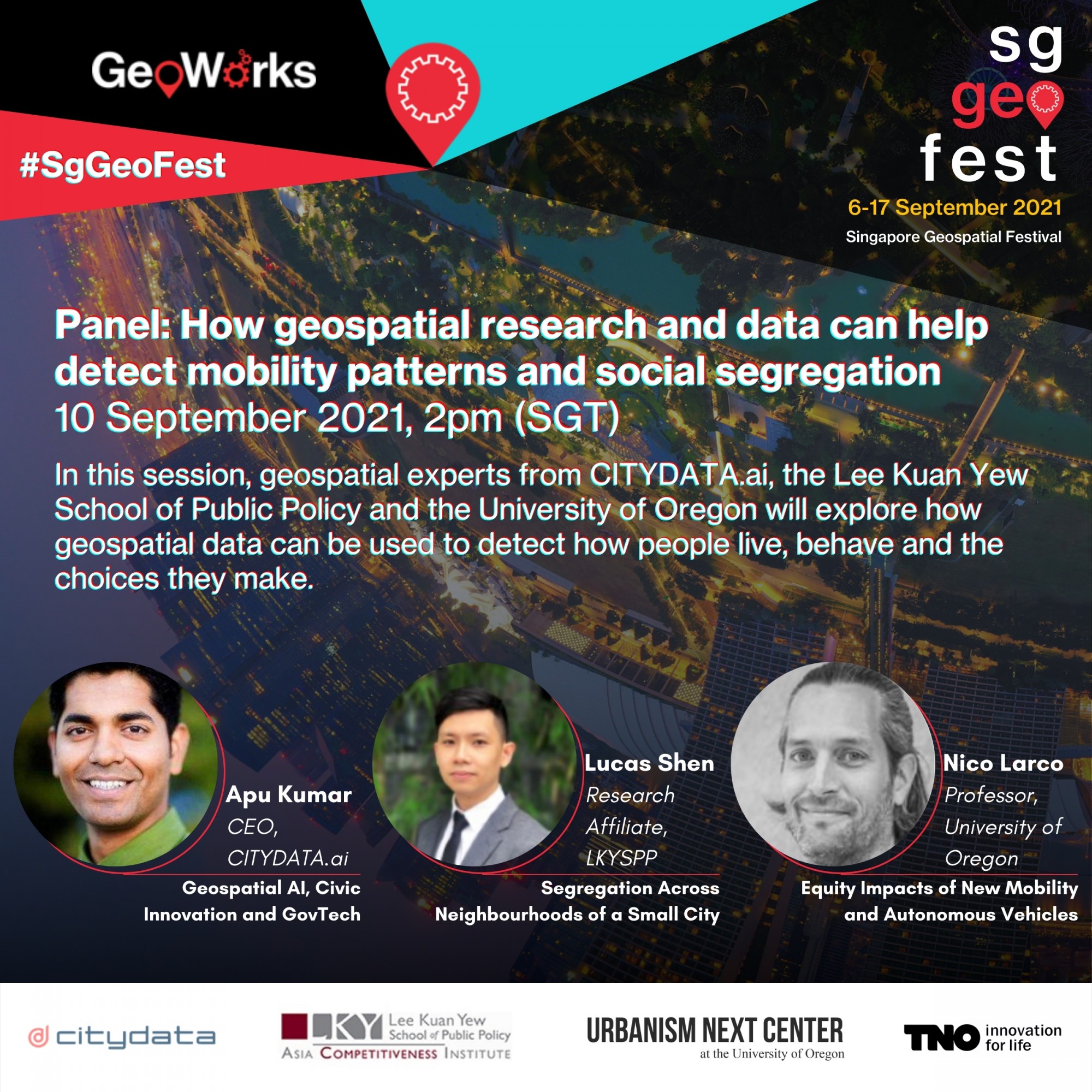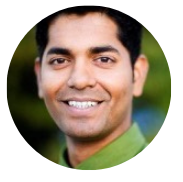
|
Home >
Settings >
Archives >
July 2021 >
How Geospatial Research and Data Can Help Detect Mobility Patterns and Social Segregation
How Geospatial Research and Data Can Help Detect Mobility Patterns and Social Segregation

Geospatial experts - Apu Kumar from CITYDATA.ai (GeoWorks’ GeoMember), Lucas Shen from the Lee Kuan Yew School of Public Policy and Nico Larco from the University of Oregon - will take part in a panel on geospatial research at the Singapore Geospatial Festival 2021 #SgGeoFest this September.
The session, “How geospatial research and data can help detect mobility patterns and social segregation”, will take place on the 10th September. View below for more details on the panel.
For more information on the Singapore Geospatial Festival 2021, visit:
Panel Details |
|||
|
Geospatial AI, Civic Innovation and GovTech
Apu Kumar, CEO, CITYDATA.ai
CITYDATA.ai’s CEO, Apu Kumar, will highlight the company’s Geospatial AI platform that simulates the presence and movement of people through fresh, accurate, anonymised and crowdsourced mobility data. Their data APIs and visualisation apps reveal the influence and impact of the real-world physical environment on the behaviours, actions, choices and preferences of populations.
|
 
|
||
|
Segregation Across Neighbourhoods of a Small City
Lucas Shen from the Lee Kuan Yew School of Public Policy will highlight how the use of geospatial intelligence from CITYDATA.ai can be used to detect social segregation in Singapore. The findings relate to an emergent set of studies that rely on geospatial data to better understand the world one lives in.
|
  |
||
|
Equity Impacts of New Mobility and Autonomous Vehicles
The revolutions occurring in mobility have promised to increase access and safety. A large question remains, however, about who will benefit from these innovations and who may be left out. New Mobility and Autonomous Vehicles will no doubt reshape the transportation landscape, but in doing so they will also create large equity challenges. This presentation will review a framework we have developed that describes the range of issues that need to be addressed when considering equity impacts of emerging technology and models in the transportation sector. This includes transportation specific topics, but also includes equity related impacts on land use and development patterns.
|
  
|
||